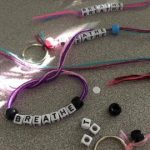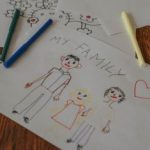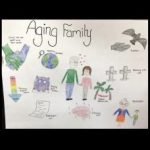
Independence or singlehood is the most critical stage of the family life cycle. During this stage, one strives to become fully able to support himself or herself emotionally, physically, socially and financially. Utilizing Sharon Lipinski’s “7 Generosity Habits” and Learning to Breathe: A Mindfulness Curriculum for Adolescents , Sasha Roble, a FACS teacher from Pennsylvania, created this lesson which encourages students to strive for a healthy body, mind and spirit. Keeping in mind throughout the lesson, that taking care of oneself means that you have a solid, strong foundation from which you can give to others throughout the family life cycle. After spending some time on managing one’s physical health, students in this lesson focus on the concept of mindfulness. Scientific studies show that mindfulness boosts your immune system, increases positive emotions, decreases depression and anxiety, grows additional gray matter in the brain, fosters compassion and enhances relationships.
Read more →




